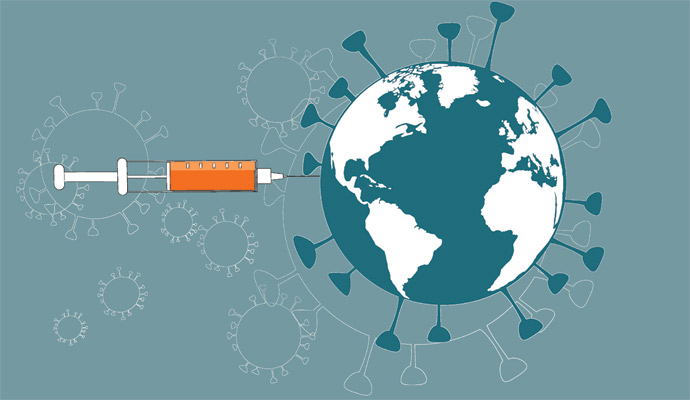GSK, Sanofi to Supply 300M Doses of COVID-19 Vaccine to EU
The agreement will allow for the purchase of a COVID-19 vaccine for all member states of the European Union, including lower- and middle-income countries.

Source: Getty Images
- Sanofi and GSK recently finalized an agreement with the European Commission (EC) for the supply of up to 300 million doses of their COVID-19 vaccine, once the vaccine is approved.
The agreement will allow the purchase of the vaccine for all member atates of the European Union (EU) and provide funding to support the scale-up of Sanofi and GSK manufacturing capabilities on European soil, a GSK spokesperson said.
The final vaccine doses will be manufactured in European countries, leveraging Sanofi and GSK’s industrial sites in Belgium, Italy, Germany, and France, an announcement released by GSK stated.
The agreement comes just months after a July 31 announcement from GSK about its collaboration with Sanofi and HHS and the Department of Defense to help fund the development of COVID-19 vaccines and secure scale-up of Sanofi’s and GSK’s manufacturing capabilities in the US.
As part of the initiative, the US government provided nearly $2.1 billion to further develop a COVID-19 vaccine, including clinical trials, with the remainder used for manufacturing scale-up and delivery of an initial 100 million doses of the vaccine.
As part of the collaboration, the government had the option for the supply of an additional 500 million doses over a longer term, which would further Trump’s Operation Warp Speed goal of providing millions of doses of safe and effective vaccines to the public.
Back in April, the companies signed a letter of intent to develop the COVID-19 vaccine, which uses Sanofi’s S-protein COVID-19 antigen and GSK’s pandemic adjuvant technology.
The adjuvant technology is useful for crises like COVID-19 because it can reduce the amount of vaccine protein required per dose. This allows more vaccines to be created and ensures access to care for all individuals.
GSK has already announced that it committed to manufacturing 1 billion doses of its vaccine adjuvant system in 2021 to further support the development of various adjuvanted COVID-19 vaccine candidates.
In all cases, vaccines containing adjuvants are tested for safety and effectiveness in clinical trials before they are licensed for use in the US and continuously monitored by CMS and FDA once the vaccines are approved. But other countries are also looking to the technology for a solution to COVID-19.
In August, GSK and Sanofi reached an agreement with the UK government for the supply of up to 60 million doses of the company’s jointly developed COVID-19 vaccine.
Just recently, Sanofi and GSK announced the start of the Phase 1/2 clinical trial for their COVID-19 vaccine.
The randomized, double blind and placebo-controlled trial enrolled 440 health adults across 11 investigational sites in the US to evaluate the safety, reactogenicity, and immunogenicity of the vaccine candidate.
Pre-clinical data showed a positive reactogenicity profile, GSK noted. And data based on two injections of the vaccine showed high levels of neutralizing antibodies that are comparable to levels in humans who recovered from the COVID-19 infection.
The companies expect first results in early December 2020, which they will use to support the initiation of a Phase 3 trial at the end of December. If the data are sufficient for licensure application, regulatory approval could be requested in the first half of 2021, GSK said.
“Sanofi and GSK bring proven science and technology to the fight against the global COVID-19 pandemic, with the shared objective of delivering a safe and effective vaccine. The initiation of our clinical study is an important step and brings us closer to a potential vaccine which could help defeat COVID-19,” Thomas Triomphe, executive vice president and global head of Sanofi, said in the announcement September 3rd.
“Our dedicated teams and partner continue to work around the clock as we aim to deliver the first results in early December. Positive data will enable a prompt start of the pivotal phase 3 trial by the end of this year.”
